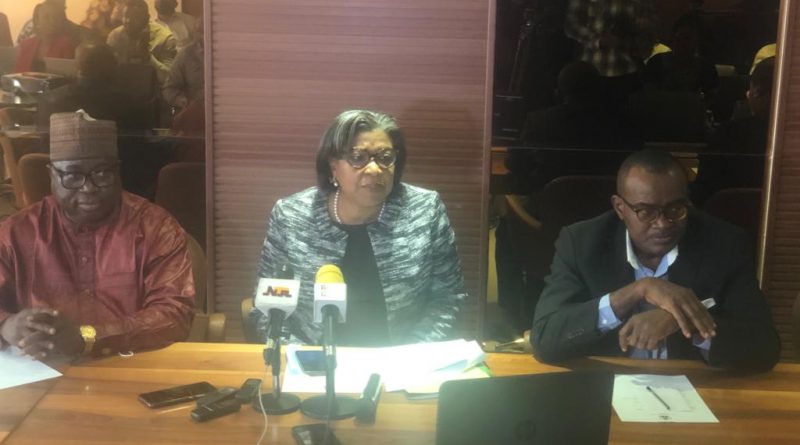Breaking:Nigeria’s Debt N39.6 Trillion And Growing- DMO
The Debt Management Office (DMO) said on Thursday that the nation’s public debt has grown to US$95.779 billion or N39.556 trillion at the end of last year.
Director-General of DMO, Ms. Patience Oniha during a media briefing in Abuja said the amount represents the total external and domestic debts of the federal government, 36 state governments and the Federal Capital Territory (FCT).
She noted that the comparable figure for December 31, 2020 was US$86.392 billion or N32.815 trillion.
She also disclosed that the public debt stock for December 31, 2021 includes new borrowings by the federal government and the sub-nationals, noting that for the federal government the 2021 appropriation and supplementary acts included total new borrowings (from domestic and external sources) of N5.489 trillion to part finance the deficit.
Oniha said borrowings for this purpose and disbursements by multi-lateral and bi-lateral creditors account for a significant portion of the increase in the debt stock, adding that increases were also recorded in the debt stock of the states and the FCT.
She revealed that borrowings were raised from diverse sources, primarily through the issuances of the Eurobonds, Sovereign Sukuk and FGN Bonds, which were utilized to finance capital projects and support economic recovery.
She said: “With the total debt stock to gross domestic product (GDP) as at December 31, 2021 of 22.47%, the debt to GDP ratio still remains within Nigeria’s self-imposed limit of 40%.
“This ratio is prudent when compared to the 55% limit advised by the World Babb and the International Monetary Fund (IMF) for countries in Nigeria’s peer group, as well as, ECOWAS Convergence Ratio of 70%.”
She however noted that the federal government is mindful of the relatively high Debt-to-Revenue Ratio and has initiated various measures to increase revenues through the Strategic Revenue Growth Initiative and the Introduction of Finance Acts since 2019.
She corrected the erroneous belief that the present administration was responsible for the rising debt profile, insisting that this was the accumulation of years of budget deficits and the need to borrow to finance the deficit budgets.
She lamented that we have not had budget surplus since way back 2010 even when the price of oil revenue was on the high.
She explained that many countries due largely to COVID-19 pandemic fell into recession and had to borrow to pull out of this, insisting that Nigeria was no exception to recession and need to get loan to finance her way to succession.




